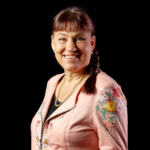What social changes are needed in Finland in order to overcome future challenges and move towards sustainable well-being? Sitra’s publication Towards a sustainable well-being society aims to answer the question of how we can pursue rich and meaningful lives without exceeding the earth’s carrying capacity.
The world is changing. Rapidly accelerating climate change, technology interwoven into our everyday lives and political and financial uncertainty are shaking up Finland’s old social order. Decreased competitiveness and the declining dependency ratio are not making it any easier to adapt to changes.
We are trying to respond to the challenges of a new kind of world using our old methods. We have not been able to keep up with fast-paced global developments. Our governance is rigid and our policies short sighted.
What needs to change?
We believe that it is possible to lead a rich and meaningful life without exceeding the earth’s carrying capacity. We propose six interrelated principles for use as building blocks for a sustainable well-being society for Finland. If executed simultaneously, they will create a virtuous circle of development.
1. Addressing well-being in a holistic way. The everyday lives of people have changed, and in order to cope in a more complex world, we need better life-management skills and well-being solutions that support our physical and mental well-being.
2. Adjusting to planetary boundaries. Climate change and resource depletion are forcing societies to change. The elements of environmental sustainability, such as resource wisdom and carbon neutrality, must form the basis of all policy-making.
3. Empowering individuals and communities. People need to be offered plenty of opportunities to have their say in issues that affect them. Suggestions on how to solve local problems presented by communities should be embraced and tried in practice.
4. Moving to a regenerative and collaborative economy. The economic structures need to be reformed so as to generate comprehensive well-being without relying on the ever-increasing consumption of natural resources. This requires new kinds of co-operation.
5. Building competencies for a complex world. Skilled people are important for Finland’s success. Mastering a holistic approach is becoming an important requirement, alongside having a narrow skill set.
6. Developing inclusive and adaptive governance. The government cannot keep up with the changes in society. Administrative sectors must relinquish silos in favour of openness and cross-sectoral models.
These six principles reflect how ways of thinking and doing must change in Western countries right now. They will help boost resilience – in other words, society’s ability to learn and pull strength from sudden changes.
Comprehensive well-being is the ultimate goal of all human activity, for which the framework is set by the earth’s carrying capacity. Practices used in the economy, communities, competence building and governance all support the attainment of this goal.
What would change look like?
What will housing, eating, working and healthcare be like in a society in which people lead rich and meaningful lives without exceeding the earth’s carrying capacity? The publication presents three narratives of possible future scenarios, which are all based on the simultaneous execution of all six principles. In the narratives related to work, social welfare and healthcare services and lifestyles, we do not want to offer ready-made solutions. Our aim is to help identify where changes are needed and the best ways to apply the principles of sustainable well-being in various areas of society.
Learn from the trailblazers
The change has already begun. Sustainable well-being is being developed in many ways all around the world. In Bhutan, the pursuit of happiness has been set as a national goal, while in Finland, the recycling practices of trailblazing companies focus on turning one company’s waste into another company’s raw material – the opportunities to build sustainable well-being are endless. We do not need to reinvent the wheel. All we need to do is learn from the trailblazers.
Sustainable well-being is a new narrative for a new era
Mankind has reached a turning point. Moving forward from here while keeping up the momentum of development requires redefining our key goals and developing operating models that better suit the new world era.
At its core, sustainable development is about meeting current needs without jeopardising the next generation’s opportunity to do the same. This ideal is difficult to execute in practice, if we do not have a clear understanding of what is meant by human needs, now and tomorrow.
We need a new understanding of what is meant by a rich and meaningful life, and to set the pursuit of it as the primary goal of all decision-making. We must also be awake to the fact that our resources for achieving that goal are limited. All human activity must be centred on the earth’s carrying capacity.
This is the premise of Sitra’s publication Towards a sustainable well-being society: living a rich and meaningful life without exceeding the planet’s boundaries.






Recommended